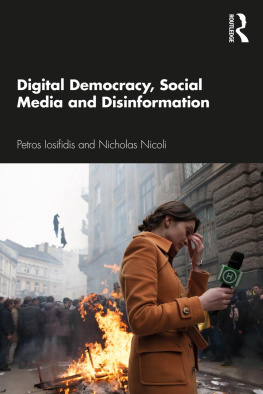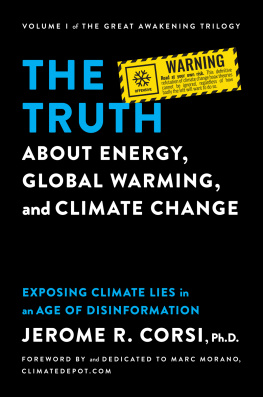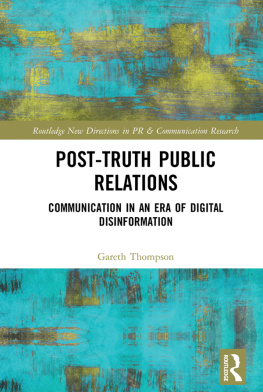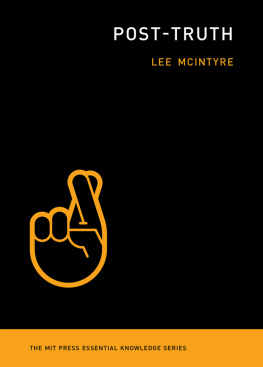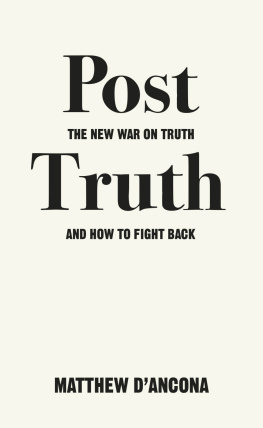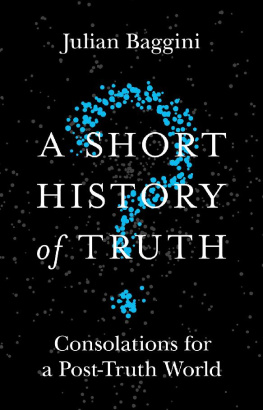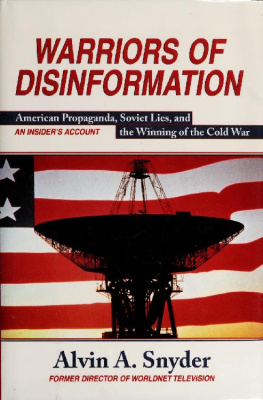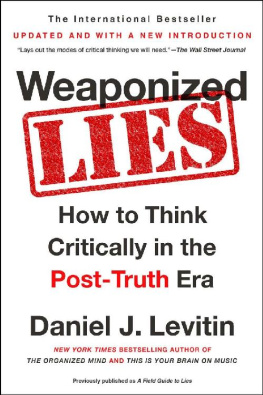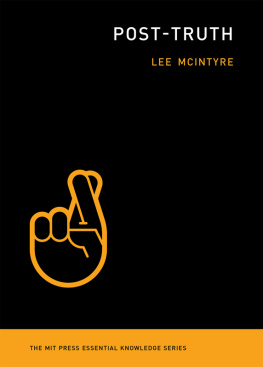Donald A. Barclay has worked as an academic librarian since 1990, holding positions at New Mexico State University, the University of Houston, the Texas Medical Center, and the University of California, Merced. He has been at UC Merced since 2002 and currently holds the position of Deputy University Librarian. He has authored numerous articles and books over the course of his career on topics ranging from the literature of the American West, to childrens literature, to library and information science. His book Fake News, Propaganda, and Plain Old Lies: How to Find Trustworthy Information in the Digital Age, was published by Rowman & Littlefield in June 2018.
He earned his bachelors degree from Boise State University and holds masters degrees in both English and Library and Information Science from the University of California, Berkeley. Prior to working as a librarian, he spent ten seasons working as a wildland fire fighter, most of that time as a member of a U.S. Forest Service Hotshot Crew.
He lives in Merced, California with his wife Caroline and three daughtersMary Tess, Emily, and Alexandra.
So many people to thank. Lets start with Charles Harmon and Erinn Slanina of Rowman & Littlefield, who keep me always honest and always on task. Professor Jeffrey Yoshimi of the University of California, Merced, who was unbelievably gracious and helpful as I was writing the chapter on philosophy (though everything that may be off the mark in that chapter is entirely my own fault and must not in any way be attributed to Jeff). I of course need to thank friends who quite voluntarily agreed to read draft chapters, an act which I always find immensely encouraging during the long slog of writing a book: Bruce Miller, Phillip Kreck, Claudia Lange, Steve Corbett, Tom Morgan, and Jan Wilbur Morgan.
Finally, thank you to Caroline for putting up with my COVID book and for all those stimulating early morning conversations about the latest chapter as we walked Olive on Bear Creek. I could not have done it without both your love and your tolerance for my writing hobby.
To say of what is that it is, or of what is not that it is not, is true.
Aristotle (385323 BCE)
A popular sentiment often heard coming from the mouths of politicians, pundits, and the like goes something like this: The world needs more welders than philosophers.
I can agree with that. There are not a lot of jobs to be had down at the old philosophy factory, while it takes armies of welders to create new goods and maintain the existing infrastructure of the physical world we inhabit. What I cant agree with is a variation on the theme that goes: The world needs welders more than it needs philosophers.
The world needs philosophers just as much as it needs welders (though, admittedly, far fewer of the former than of the latter). One reason the world needs philosophers is that philosophical ideas and philosophical ways of thinking help us better understand our world and our place in it. More to the point of the struggle to make sense of the monsoons of information to which we are exposed every day, philosophy challenges us to examine ideas and conventions that we might otherwise accept without question. In the famous phrase attributed to the Greek philosopher Socrates (c. 470399 BCE) by his student Plato (423347 BCE), The unexamined life is not worth living.
More specifically, philosophy challenges us to:
- Think carefully about the essence of truth itself and how we can really know anything with certainty.
- Meaningfully question and examine our own beliefs and the underlying assumptions on which they (often precariously) rest.
- Be more consistent in our beliefs.
- Thoughtfully weigh the validity of the ideas, opinions, and ethics of others without losing our own identity in the process.
- Construct arguments in ways that are as enlightening to us as they are to those with whom we disagree.
- Use logic to support our arguments and recognize when others, as well as ourselves, employ faulty logic.
For anyone who has spent much time in the crossfire of ideas, accusations, facts, lies, data, pseudo-data, boasts, and threats that have become the hallmarks of early twenty-first-centurys digital discourse, the value of all of the above philosophy-based survival skills should be apparent. The unexamined social media post is, after all, not worth the paper on which it is not printed.
Textbox 1.1
Philosophical Resources
In this chapter, the focus is on what philosophy can reveal to us about the nature of the post-truth culture and how philosophy might help us survive the times in which we live without surrendering our sanity or identity. If you are interested in expanding your knowledge of philosophy, a few of your options (short of the best option: enrolling in an in-person philosophy course or two) include:
- Taking an online introductory course in philosophy. Two cost-free examples are:
- Hank Greens Crash Course in Philosophy. This breezy and entertaining course requires seven hours to complete.
- Courseras Introduction to Philosophy. Developed by faculty at the University of Edinburgh, this course requires fifteen hours to complete and is structured more like a traditional college introductory course than Greens less formal Crash Course.
- Reading a philosophy textbook that provides a general introduction to the subject. The ideal textbook will be reasonably current and not too specialized in its focus. For anyone who is new to philosophy, a textbook that surveys philosophy across the board is going to be more useful than one that deals exclusively with, say, the Philosophy of Education or the Philosophy of Religion. For two examples, among many, see:
- Eugene Kellys The Basics of Western Philosophy
- Richard H. Popkin and Avrum Strolls Philosophy Made Simple
- Accessing online reference works focused on philosophy can also be a useful learning strategy. Some excellent examples include:
- Stanford Encyclopedia of Philosophy
- Internet Encyclopedia of Philosophy
- The Basics of Philosophy: A Huge Subject Broken down into Manageable Chunks
WHAT IS TRUTH?
You keep using that word. I do not think it means what you think it means.
Inigo Montoya, The Princess Bride (1987)
It is impossible to think about post-truth without first asking, What is truth? On the surface, this seems like a simple enough question. Isnt truth either yes or no? Black or white? One or zero? Fact or fiction? Many ancient philosophers, including Plato, insisted that truth (and reality) must be eternal and unchanging. Shouldnt that level of certainty be the standard for truth today? One of the common angry rants encountered in the digital discourse is the demand for media that reports only facts and truth without any opinion getting in the way. If only achieving such a goal were as simple as the complainers would have it. It is not simple. The concept of truth is, in fact, so complex that in navigating the chaos of our daily lives we often simplify the chore of sorting the true from the false by resorting to any number of familiar and convenient proofs.
I know a thing is true because
I saw it with my own eyes.
my uncle was there and told me all about it.
Ive been doing this for a long time, and, believe me, I know
thats what I was taught.
its just common sense.
thats the way it has always been.
I read it somewhere.
I saw it on screen.
it was in the news.
a parent just knows.
it feels true.
if it wasnt true, I dont know that I could go on living.


